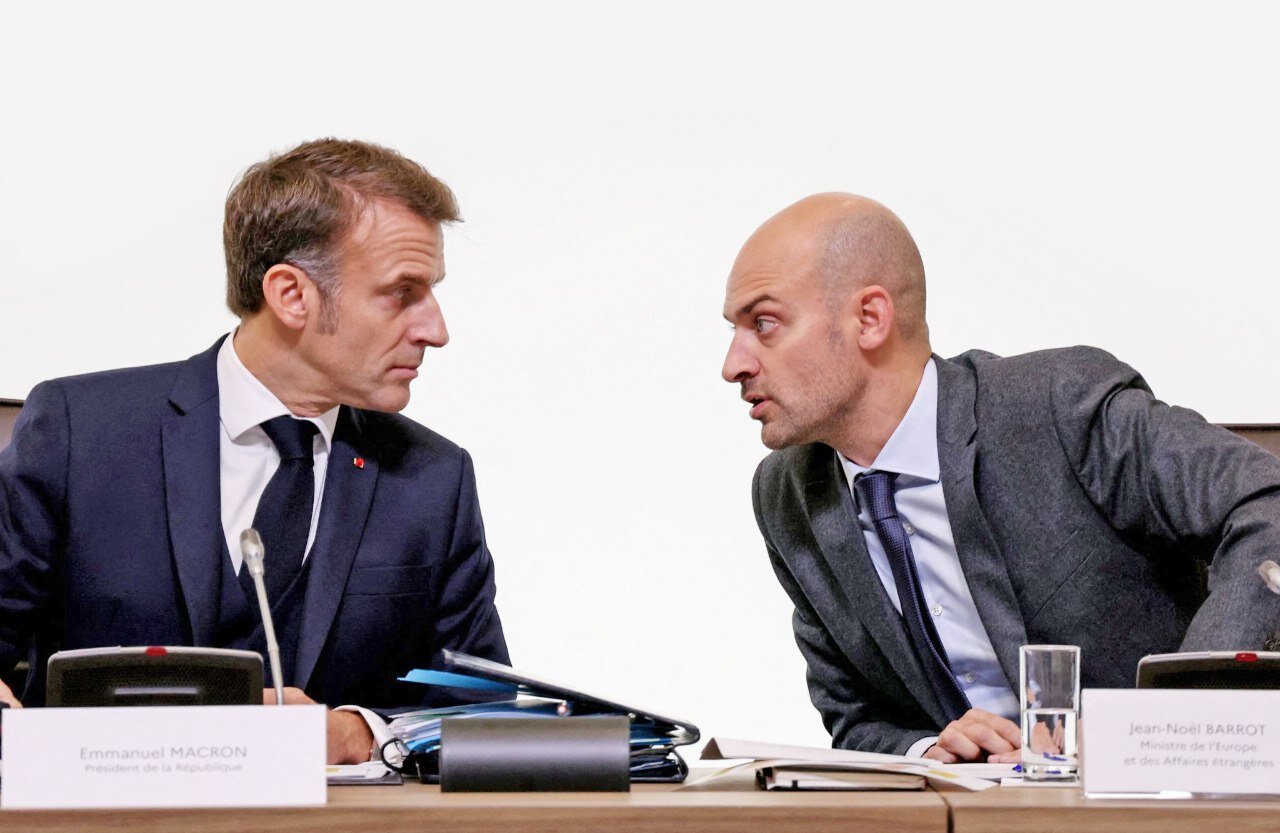French Noise
Iranian UN envoy dismisses French FM's allegations as 'politically motivated'

TEHRAN – French Foreign Minister Jean-Noël Barrot has accused Iran of being “on the cusp of developing nuclear weapons,” further threatening to reinstate sanctions lifted under the 2015 Joint Comprehensive Plan of Action (JCPOA) if Iran’s nuclear activities threaten European security.
These unsubstantiated allegations were swiftly condemned by Iran’s Ambassador to the United Nations, Amir-Saeid Iravani, who dismissed them as “politically motivated” and baseless. Iravani reaffirmed Tehran’s commitment to a peaceful nuclear program, emphasizing its adherence to stringent IAEA inspections and a fatwa issued by the Leader of the Islamic Revolution Ayatollah Seyyed Ali Khamenei, which explicitly forbids the development of nuclear weapons.
Iravani accused France of hypocrisy, pointing out its own modernization of a nuclear arsenal estimated at 290 warheads and its silence on Israel’s undeclared nuclear stockpile, which remains outside the purview of the NPT. He also criticized the European trio’s failure to uphold their end of the JCPOA after the U.S. unilaterally withdrew in 2018 under Donald Trump, describing Paris’s threats of reimposing sanctions as a form of “economic blackmail.”
Tehran maintains that its gradual reduction in compliance with the JCPOA was lawful and proportional, rooted in Articles 26 and 36 of the agreement. More critically, the Iranian ambassador emphasized that diplomacy cannot be pursued under coercion, calling instead for “genuine diplomacy” grounded in mutual respect and sovereign equality.
But while Iran has been consistent in voicing its readiness to reengage in talks, the European side appears mired in strategic confusion—exacerbated by years of playing second fiddle to Washington’s volatile West Asia policy. The erosion of Europe’s standing in the negotiations became most apparent when indirect U.S.–Iran talks resumed under the Trump administration, without significant European involvement.
Indeed, European frustration has grown palpably in diplomatic circles. Many EU leaders were central to brokering the original JCPOA and are now openly disappointed at their exclusion from the revived discussions. But the sidelining of Europe is not the result of Iranian neglect. On the contrary, Iran has made multiple overtures to reengage with the European trio.
In a press briefing after the cabinet meeting on Wednesday, Iran’s Foreign Minister Abbas Araghchi announced plans to hold a preparatory meeting in Rome with the E3—France, Germany, and Britain—before a broader discussion on the nuclear issue. Acknowledging Europe’s declining role in the process due to “flawed policies,” the minister nonetheless emphasized that Tehran does not seek to exclude Europe and remains willing to cooperate. He reaffirmed Iran’s commitment to resolving the issue through “global understanding” and noted that negotiations with the U.S. and oversight by the IAEA will continue to play key roles.
Additionally, in a post on his X account published on April 24, Araghchi lamented that relations with the E3 have deteriorated into a “lose-lose” situation, largely due to the European side’s decision to choose confrontation over diplomacy. He recounted a meeting in New York in September with E3 foreign ministers where he offered a comprehensive dialogue—not limited to nuclear issues—but was rebuffed.
Araghchi’s offer still stands. Having consulted with counterparts in Moscow and Beijing, he expressed readiness to visit Paris, Berlin, and London to restart discussions, signaling Iran’s willingness to rebuild ties.
This call for European autonomy speaks to a broader criticism that Iran has long held: that Europe has consistently failed to operate independently in its foreign policy, particularly on Iran.
Iranian officials insist that for Europe to regain credibility and play a meaningful role in nuclear diplomacy, it must take bold steps toward independence. This could begin with a reassessment of its sanctions policy—especially its willingness to invoke the JCPOA’s controversial “snapback” mechanism, which would restore UN sanctions based on alleged Iranian violations.
From Tehran’s perspective, invoking the snapback is not only unjustified and illegal but politically reckless. It would place the E3 firmly in an aggressive posture toward Iran and sabotage any chance of diplomatic resolution. Instead of acting as mediators or bridge-builders, the Europeans risk becoming enablers of escalation, undermining both regional stability and their own credibility.
Iran also sees this moment as a test of Europe’s commitment to multilateralism. If Europe continues to mirror Washington’s sanctions regime, it cannot expect to be taken seriously as an independent actor. But if it were to demonstrate real independence—perhaps by rejecting further sanctions or embracing Iran’s offer of dialogue—Europe could chart a new course in West Asian diplomacy.
Ultimately, the Iranian message is clear: nuclear diplomacy is still possible, but not through threats or duplicity. Respect, sovereignty, and genuine engagement are the only viable paths forward—and it is up to Europe to decide whether it is ready to walk that path.
Leave a Comment